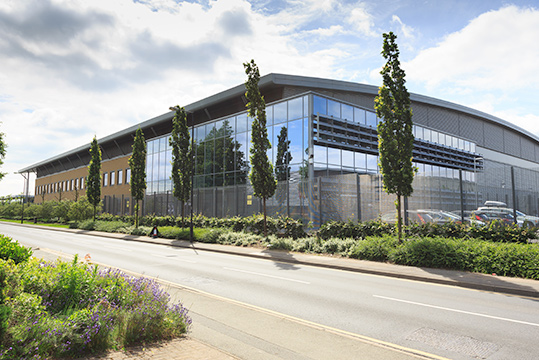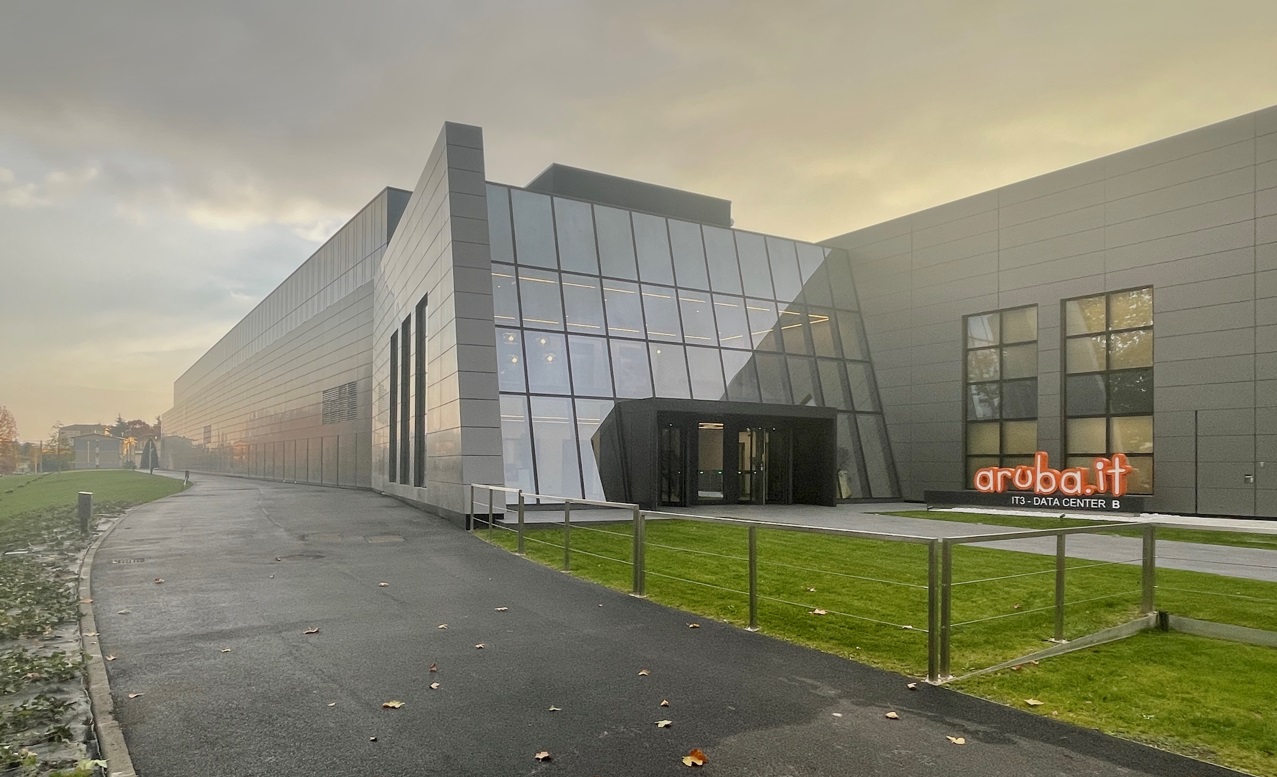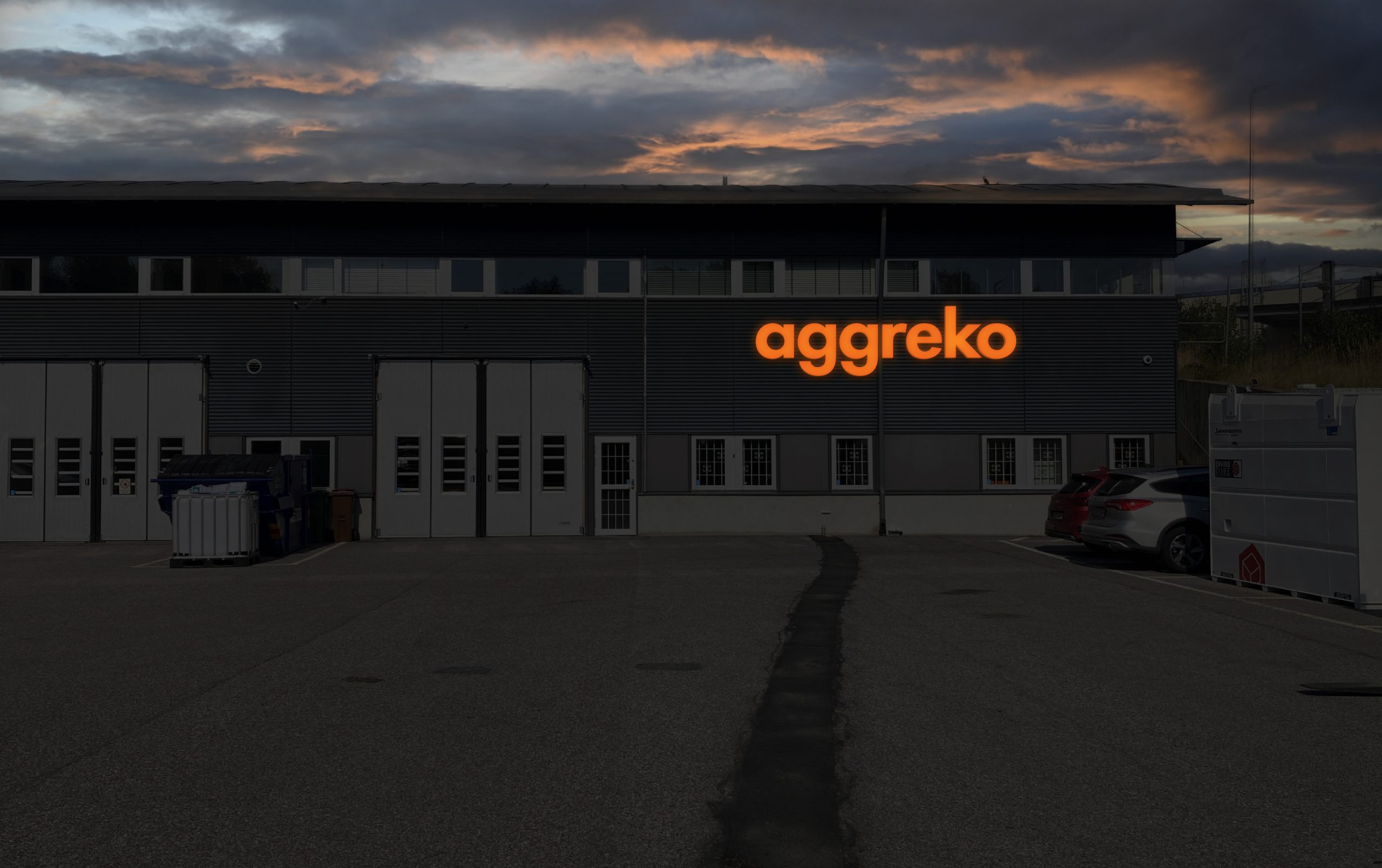Insights into Data Centre Investment & Market Growth
Data Centres
Insights into Data Centre Investment & Market Growth
News
Microsoft announces acquisition of Fungible
Microsoft has announced the acquisition of Fungible, a provider of composable infrastructure aimed at accelerating networking and storage performance in data centres with high efficiency, low-power data processing units (DPUs).
Fungible’s technologies help enable high performance, scalable, disaggregated, scaled-out data centre infrastructure with reliability and security.
The Fungible team will join Microsoft’s data centre infrastructure engineering teams and will focus on delivering multiple DPU solutions, network innovation and hardware systems advancements.
This announcement is said to further signal Microsoft’s commitment to long term differentiated investments in its data centre infrastructure, which enhances its broad range of technologies and offerings, including offloading, improving latency, increasing data centre server density, optimising energy efficiency and reducing costs.
Beatrice - 13 January 2023
Data Centres
Hyperscale Data Centres: Scale, Speed & Strategy
Insights into Data Centre Investment & Market Growth
The London Fund invests with Macquarie in digital infrastructure
Local Pensions Partnership Investments (LPPI) has announced that The London Fund (the Fund) has agreed to co-invest alongside Macquarie Asset Management in its acquisition of a significant minority stake in London-based VIRTUS, a growing hyperscale data centre platform in London.
VIRTUS is a pure-play data centre owner-operator, providing critical digital infrastructure which provides vital connectivity and access to online services for residents and businesses in London. The business provides intelligent solutions to improve the storage, retrieval, management and security of data across global networks.
Established in 2008, VIRTUS currently comprises 11 sites in and around London, including in Enfield, Hayes, Slough and Stockley Park, with a combined capacity of more than 100MW. The business aims to build more sites in the Greater London area in line with increasing data needs, while beginning to expand its operations into Europe.
The VIRTUS investment also delivers on its Positive Social Outcomes promise by supporting London’s digital ecosystem through a data centre platform which matches its electricity consumption to 100% renewable energy procurement alongside its wider commitment to net zero by 2030 and efficient water and energy usage.
Richard Tomlinson, Chief Investment Officer, Local Pensions Partnership Investments, says, “Digital infrastructure has been driven by long-term tailwinds, including growing data consumption and the development of cloud computing and VIRTUS’s success is testament to this. With this investment, we’re pleased to be supporting a key global player in a rapidly growing sector, enhancing London’s digital ecosystem, whilst also proving that commercial success and a commitment to net zero can be compatible business goals.”
Vanessa Shia, Head of Private Markets, London CIV, says, “We are delighted to have partnered with Macquarie in our co-investment in VIRTUS through The London Fund. This builds on our continual focus to making critical investments in London and greatly complements our existing portfolio. This is one of our first direct investments in the digital infrastructure space, and, given the essential role it plays in supporting global connectivity by offering an alternative to travel and commuting, represents a pivotal investment on behalf of our clients in their journey to net zero.”
Phil Peters, Head of Macquarie Asset Management’s Client Solutions Group, says, “We are very pleased to be extending our existing partnerships with LPPI and London CIV, the collaborators of The London Fund, with this co-investment in VIRTUS Data Centres alongside our managed funds. The London Fund’s objective of investing in assets that have positive benefits for Londoners very much aligns with our responsibility and opportunity to drive positive change for all our stakeholders through our investments.”
Beatrice - 10 January 2023
Cyber Security Insights for Resilient Digital Defence
Data Centre Security: Protecting Infrastructure from Physical and Cyber Threats
Insights into Data Centre Investment & Market Growth
Crashing markets result in record number of crypto heists
Besides a prolonged bear market, the crypto space is battling another plague of heists targeting different products in the sector. The number of crypto industry thefts has spiked, contributing to the significant loss of investor funds.
In particular, according to data presented by Finbold, in 2022 the number of cryptocurrency related heists hit 190 as of 9 December, representing a growth of 43.93% from last year's figure of 132. In 2020, 50 incidents were recorded, while in 2019, the crypto sector accounted for 41 heists.
Notably, the number of heists hit double digits for the first time in 2018 at 38, a record growth of over 320% from the 2017 figure of nine. The lowest number of incidents was recorded in 2011 at four.
At the same time, the value lost in heists has varied over the years, with the top 10 incidents leading to an accumulative fiat value loss of $4.28 billion. The March 2022 Ronin Network (Axie Infinity) heist ranks top with $620 million stolen, followed by Poly Network at $610 million. The Binance hack of October 2022 resulted in a loss of $570 million, followed by Coincheck at $532 million.
The recent FTX crypto exchange collapse ranks in the fifth spot at $477 million, while the infamous MT Gox incident occupies the sixth spot overall at $470 million.
Other high-profile heists include Wormhole ($326 million), KuCoin ($281 million), PancakeBunny ($200 million), and Bitmart ($196 million).
Drivers of crypto heists
The report also identified some factors driving the increasing number of heists in the crypto space. It says:
“Indeed, hackers are taking advantage of the cryptocurrency sector's infancy stages to initiate the heists by leveraging sophisticated techniques, such as using multiple wallets and exchanges, to obscure their tracks and make it more difficult to identify them. In this line, the anonymity and lack of regulation in the cryptocurrency market partly make it easier for hackers to operate without being detected or traced.”
Overall, bad actors are likely to continue innovating means of exploiting vulnerabilities in the crypto space. However, the number of incidents will likely drop with an increased focus on the right regulatory approaches and keen consideration for security measures.
Beatrice - 3 January 2023
Data
Data Centres
Insights into Data Centre Investment & Market Growth
Kester Capital acquires majority stake in DC Byte
Kester Capital has announced its investment in DC Byte, a global market intelligence and analytics provider for data centre operators, developers, investors, advisers and suppliers.
The investment represents Kester’s third investment in the information and data sector, and the fifth investment out of its latest fund, Kester Capital II, which closed at its hard cap in 2020.
Kester will work alongside DC Byte’s management team to develop new markets and products aimed at capitalising on the strong organic growth being driven by underlying demand for, and investment in, digital infrastructure.
Demand for cloud storage is driving the need for increased capacity, regulation and geographical expansion and DC Byte is well positioned to continue to benefit from these significant market tailwinds.
DC Byte was founded in 2017 by CEO Ed Galvin with the backing of seed investors led by property industry veteran Alan Froggatt. The company has rapidly established itself with a highly differentiated subscription-based offering through its data centre focused market intelligence and analytics platform. This proprietary data and insight rich service provides users with a comprehensive global database, updated and validated in real time, alleviating critical customer pain points caused by the lack of reliable and transparent information. DC Byte is headquartered in London, with operations in Europe, Asia and North America.
Ed Galvin, DC Byte CEO, says, “I am delighted to be working with Kester to accelerate our vision for the company as we enter a new and exciting chapter in the story of DC Byte. Kester’s experience in scaling data and information businesses makes them an excellent partner to support the future growth of the business and continue our mission to provide ever greater levels of insight into the data centre sector.”
Cameron Crockett, Managing Partner at Kester Capital, adds, “Ed and team have built an exceptional data business in the very attractive and rapidly scaling data centre market. Subscription information and data is a core sector for Kester and we look forward to helping the DC Byte team maximise the opportunity ahead of them.”
Beatrice - 20 December 2022
Data Centres
Insights into Data Centre Investment & Market Growth
Aruba S.p.A receives €500 million in funding
Aruba S.p.A has announced the major expansion of its Global Cloud Data Centre (GCDC) campus following a €500 million investment. The IT3 technology campus in Ponte San Pietro - already Italy’s largest data centre campus spanning 200,000m² - is now also home to two further ‘future-proof’ data centres and a large ultra-technological event space, the Aruba Auditorium.
The first of the new data centres has an area of more than 17,000m² and 9MW of power, spread over three large data rooms, with independent infrastructure dedicated to each room. The second is a multi-storey data centre with eight data rooms placed on two levels, a full-scale power of 8MW and a total area of almost 14,000m². The Aruba Auditorium, a large and ultra-modern gathering space for holding events that provides a total area of 1,500m² and a seating capacity of about 400, will be capable of hosting multiple multi-sensory events simultaneously.
The new latest generation data centres are the result of Aruba's long experience in the development, design, construction and management of high-tech infrastructures, and have become a reference point for the digitisation in Italy in terms of IT infrastructure, and cement GCDC’s position as an asset in the broader path of national transformation and innovation. The proprietary data centres store the data of millions of Italian and international citizens and companies, and will create important skilled jobs in the area. The company has already started to select and train part of its future resources through the Aruba Academy, the Aruba Group's school, established with the aim of recruiting new talent and training them in STEM and IT fields as well as partnerships with the University of Bergamo and the Polytechnic of Turin. This upskilling will also prepare Aruba to further scale the site, with future plans to add two more data centres already underway.
“We are proud to be able to officially present two new state-of-the-art data centres that will contribute to the digital transformation of the country,” says Stefano Cecconi, CEO of Aruba. “We design our technological campuses not only with the aim of future-proofing them, but also to be as eco-sustainable as possible, so as to minimise environmental impact, make consumption more efficient - in full compliance with reliability and safety standards - and achieve the highest levels of certification. We are particularly happy to inaugurate the new Aruba Auditorium, a place of aggregation and interaction that will allow us, other companies or local realities to organise events in a highly technological and innovative context.”
Aruba scales its data centre infrastructure with sustainability top of mind, with GCDC is consistently green-by-design. The whole campus - a redeveloped industrial site where a historic textile company, Legler, once stood - is completely powered by renewable sources with Guarantee of Origin (GO) certification, while the campus infrastructure includes photovoltaic systems, geothermal systems, and a hydroelectric plant on the nearby Brembo River. The entire GCDC hub has also been designed and built with the aim of exceeding market standards in terms of reliability and performance: it is certified to meet and exceed the highest levels of resilience provided by ANSI/TIA 942 Rating level 4 and holds ISO 22237 (TBD) certification.
Beatrice - 1 December 2022
Data Centre Build News & Insights
Data Centre Projects: Infrastructure Builds, Innovations & Updates
Insights into Data Centre Investment & Market Growth
Scalable Network Attached Solutions for Modern Infrastructure
Marist College Canberra unlocks IT autonomy with Nutanix
Nutanix helped Marist College Canberra simplify its IT infrastructure and enhance the learning experience of its students and educators.
Established in 1968, Marist College Canberra is a Catholic school for boys from years four to 12. The school’s 200 teachers and staff provide a diversity of academic, spiritual, cultural, and personal development opportunities to its 1,800 students.
Sam Walton, ICT Systems and Operations manager, and his five-strong team are responsible for providing the IT infrastructure and rolling out new projects that keep students connected and continue to improve their learning experiences.
“From an IT perspective, schools are always a complex environment,” Sam says. “Not only are we a relatively large school with more than 2,000 end-users including students and teachers, but we also offer many extracurricular activities. The role of IT is to support all the different departments and all the applications they want to run in a single environment.”
Sam says that maintaining such a complex environment with legacy three-tier data centre architecture including servers, storage and networking - a system created decades ago - would be a resource-intensive challenge. A recent investment in Nutanix hyperconverged infrastructure, however, freed Walton and his team to deliver greater value to the school.
Sam adds, “Nutanix is the heart of our digital learning experience. We went from a full rack of SANs (storage area networks) and hosts which were much more complicated and required a lot more maintenance just to keep running, to Nutanix which is essentially ‘set up and forget’.
“In our IT team, we have to know so much about everything, so the really good thing about Nutanix is that it just works - I can’t be dedicating resources to maintaining the environment every week. The infrastructure we have now means my team can focus on more strategic projects for the college.”
Another benefit, according to Sam, has been the reduced hardware footprint which has in turn reduced the college’s energy consumption.
“IT infrastructure, particularly outdated infrastructure, can be a major energy burden,” he says. “Instead of a full rack, we’ve gone down to six RU (rack units) in our production environment. This has reduced power consumption to the point we’re now downsizing our UPS, which provides emergency power if the main power source fails.”
Marist is also using three Nutanix nodes for its on-campus Disaster Recovery (DR) environment which keeps systems going in the event of an outage, and another three nodes for object storage, which enables greater data scalability for the school.
“DR is now instant,” Sam says. “For example, late last year I had to move everything to the DR site and performance wasn’t impacted at all. No one noticed any difference. This has enabled me to sleep at night because I know now if something ever goes wrong, we can seamlessly switch over to DR.”
Jim Steed, Managing Director - ANZ at Nutanix, says Marist College Canberra has ensured the best learning experience for its students, both today and into the future.
“With its IT team liberated from having to keep the lights on, Walton and the Marist IT team can focus on the things that matter - like improving the student and educator experience - rather than putting out fires and constant maintenance. At Nutanix, we believe IT infrastructure should be invisible so organisations like Marist can focus on what they do best - educating the next generation of Australian leaders,” Jim concludes.
Beatrice - 29 November 2022
Data
Insights into Data Centre Investment & Market Growth
News
UK finalises deal with South Korea to help unlock millions in growth
UK organisations will be able to share personal data securely with the Republic of Korea before the end of the year as the UK finalises legislation for its first independent adequacy decision.
Allowing businesses in both countries to share data without restrictions will make it easier for them to operate and grow. Once in force, the legislation is estimated to cut administrative and financial burdens for UK businesses by £11 million a year and is expected to increase exports to South Korea by £3.8 million annually.
After agreeing to a data adequacy agreement in principle in July 2022, the UK Government has completed its full assessment of the Republic of Korea’s personal data legislation. The government has concluded that the Republic of Korea has strong privacy laws in place which will protect data transfers to South Korea while upholding the rights and protections of UK citizens.
Before now, organisations needed to have costly and time-consuming contractual safeguards in place, such as standard data protection clauses and Binding Corporate Rules. The new freedoms will open up opportunities for many small and medium sized businesses who may have avoided international data transfers to Korea due to these burdens.
Removing barriers to data transfers will also boost research and innovation by making it easier for experts to collaborate on medical treatments and other vital research which could save lives in the UK. For example, secure international personal data transfers are essential for developing effective medical treatments like vaccines.
UK Data Minister Julia Lopez met with representatives of the Korean Personal Information Protection Commission to mark the legislation being laid in Parliament, which is expected to come into force from the 19 December.
This is the UK’s first decision to recognise a priority country adequate since leaving the European Union (EU).
The UK’s adequacy decision is broader than the EU’s deal with South Korea. The most significant difference between the two deals is that UK organisations will be able to share personal data related to credit information with the Republic of Korea to help identify customers and verify payments. The ability to share this type of data will help UK businesses with a presence in the Republic of Korea to boost credit, lending, investment and insurance operations in the Republic of Korea.
Data Minister, Julia Lopez says, “Before the end of the year, businesses will be able to share data freely with the Republic of Korea - safe in the knowledge it will be protected to the high privacy standards we expect in the UK.
“Removing unnecessary burdens on businesses will help unleash innovation, drive growth and improve lives across both our countries.”
Ko Haksoo, Chairperson of the Korean Personal Information Protection Commission, says, "It's a great pleasure for us to see the outcome of the UK's adequacy decision for the Republic of Korea. I look forward to strengthening our partnership in promoting the trustworthy use and exchange of data between Korea and the UK based on a high level of data protection.”
John Edwards, UK Information Commissioner, adds, “We support the government in undertaking adequacy assessments to enable personal data to flow freely to trusted partners around the world. We provided advice to the government during this assessment of the Republic of Korea, and we are satisfied with the government's recognition of similar data protection rights and protection in Korean laws. This will bring certainty to UK businesses and reduce the burden of compliance, while ensuring people's data is handled responsibly.”
Beatrice - 24 November 2022
Data Centres
Hyperscale Data Centres: Scale, Speed & Strategy
Insights into Data Centre Investment & Market Growth
Prime Data Centres breaks ground on Chicago data centre campus
Prime Data Centres has announced that it has broken ground on its $1bn Chicago data centre campus at 1600 East Higgins Road in Elk Grove Village, Illinois. Prime ORD will deliver more than 750,000ft2 and 175MW of capacity at full build-out, creating the largest data centre campus in Greater Chicago. ORD-01, the first of three planned campus data centres, will be marketed to major cloud providers, global internet businesses, colocation companies, and the Fortune 500 enterprise as a single-tenant, hyperscale data centre.
“On behalf of everyone at Prime, I would like to thank Elk Grove Village and the numerous contractors and team members involved in readying ORD-01,” comments Nicholas Laag, Chief Executive Officer of Prime Data Centres. “The partnership between Elk Grove and the data centre industry has led to unprecedented growth and positive economic impact. Looking ahead, we will continue to partner with forward-thinking governments, executing on an aggressive, multinational expansion plan that will establish Prime as the data centre foundation for the global proliferation of content creation and cloud solutions.”
“I couldn’t be happier to welcome our new neighbours at Prime Data Centres to Illinois as they break ground on their Chicago data centre campus,” says Governor JB Pritzker. “We aren’t just the heart of the Midwest - we are a national leader in innovation and business growth, in large part thanks to companies like Prime. From the outset of my administration, I have prioritised attracting companies in the rapidly growing data centre industry. Thanks to those efforts and our reputation as a global tech hub, we have 15 operating data centres investing more than $4.6bn in our communities - all while creating hundreds of jobs. This data centre brings with it economic opportunity at every turn - for residents of Elk Grove, greater Chicago, and throughout our great state. Congratulations to the entire Prime team on this extraordinary feat.”
The official ceremony was held on 15 November, and featured guest speakers such as Elk Grove Village Mayor Craig Johnson, as well as executives from the Illinois Department of Commerce and Economic Opportunity and project partners ComEd, Clune Construction Company and Gensler.
“Prime’s presence in Elk Grove Village validates our unique position as a hub for data centre operators. We welcome Prime to Elk Grove Village, not as tenants, but as partners in every sense of the word,” says Elk Grove Village Mayor Craig Johnson. “While we know that our infrastructure suits Prime’s needs, we also know that they will find success here in Elk Grove because we both share a drive to innovate and thrive. We are looking forward to partnering with Prime so we can support their continued growth here in Elk Grove Village.”
Elk Grove Village’s tax incentive plan and increased regional demand created a unique opportunity for Prime Data Centres. Prime ORD-01 will deliver 384,000ft2 and up to 72MW of much-needed capacity to the tightened market. The facility will be highly energy efficient and built to the exacting availability, connectivity and power density requirements of today's most prominent cloud brands.
Beatrice - 23 November 2022
Data Centres
Insights into Data Centre Investment & Market Growth
Aggreko establishes new Stockholm depot to support Nordics
Aggreko has opened a new depot in Stockholm in an effort to provide continued support to the growing Nordic data centre market.
According to Research and Market’s Nordic Data Centre Market - Industry Outlook and Forecast 2022-2027, the Nordic region witnessed investments totalling £4.89 billion in 2021, and is set to receive an additional £9.52 billion by 2027. In response to this growth, Aggreko has established a new facility in Stockholm, which will provide temperature control, contingency power and load bank testing services to the region.
John Fraser, Sector Development Manager for Data Centres at Aggreko, says, “The Nordic region has rapidly become recognised as an ideal location for the construction of data centres. This can largely be attributed to the availability of green energy sources in the region, as well as the free cooling potential that the climate provides.
“We’re seeing new hyperscale facilities crop up all the time, with each requiring temporary power and temperature control to support the build, as well as comprehensive load bank testing once it’s completed. With the colocation and edge markets also experiencing similar growth, it simply made sense to have a facility local to these data centres that can provide these services.”
Opened in May, the new depot will serve the capital and its surrounding regions, with the closest site previously located in Malmö, on Sweden’s south coast. As part of its day-to-day activities, the facility will also be responsible for the testing and repair of equipment.
John concludes, “When sourcing a contingency power, temperature control or load bank service, the proximity of the depot is always a key consideration. The distance between the data centre and the site can have a knock-on effect for logistics, lead times and more, so it is important that there are facilities in the local vicinity.
“This is especially critical for the Nordic region - with sites more remote and spread out geographically than in the FLAP markets, emergency equipment can take longer to reach its destination, leading to costly downtime.
“In the midst of a booming data centre market, it was a natural progression to construct a new facility to serve Central Sweden. The Nordics are truly world-leading in the data centre sector, so we look forward to contributing to their current and future success.”
Beatrice - 8 November 2022
Data Centre Operations: Optimising Infrastructure for Performance and Reliability
Enterprise Network Infrastructure: Design, Performance & Security
Insights into Data Centre Investment & Market Growth
News in Cloud Computing & Data Storage
LightEdge launches fifth generation of cloud portfolio with upgrades
LightEdge has updated its entire cloud portfolio and is now offering the fifth generation of its private multi and single tenant cloud services. Not only has LightEdge improved its underlying cloud infrastructure, but the company also restructured its managed services offerings, allowing the team to better support customer cloud environments on top of LightEdge’s infrastructure.
“During a time when data centre and cloud providers are choosing to go ‘infrastructure light,’ we’re proudly infrastructure heavy - meaning we’re deploying, maintaining, and heavily investing in our own infrastructure,” says Mike McHenry, VP of Product Architecture for LightEdge. “It’s capital and time-intensive to do so, but it matters to our customers that we’re managing our infrastructure with an extremely high level of care and commitment.”
LightEdge has upgraded the following areas of its cloud portfolio:
• OS and cloud management: managing or deploying applications or VMs within LightEdge’s infrastructure, including tailored migrations and implementations, cloud monitoring, patching, and more.
• Hybrid and multi-cloud management: helping customers manage their cloud environments no matter where they’re hosted.
• Cloud Connectivity Suite: unparalleled scale, redundancy, speed, and uptime powered by LightEdge's private fibre backbone. Offering ultra-low latency interconnection in local markets.
• Virtual private cloud (VPC): compliant hosted computing designed to scale with business needs.
• Recovery Runbook: helping customers build and manage disaster recovery (DR) and business continuity (BC) plans using LightEdge Infrastructure. These plans are validated, tested, and co-managed to guarantee that DR plans work.
• Bare Metal Cloud: dedicated servers that provide full control, customisation, and scale.
The company’s cloud portfolio is container-ready and supports next-gen workloads such as network functions virtualisation (NFV) and Kubernetes-based containers. The team built its cloud architecture at a scale that allows LightEdge to deliver top-of-the-line solutions at economical prices. Depending on client needs, LightEdge deploys custom cloud solutions with the appropriate level of flexibility, scalability, and control.
“As a 15-year old data centre and cloud business, LightEdge has been creating custom infrastructure solutions since before the term ‘cloud’ was coined,” says Jim Masterson, CEO of LightEdge. “Our cloud suite has grown and evolved substantially, while LightEdge has maintained our position as a longstanding leader in this space. When it comes to cloud, we excel in our customer experience, range of options, ability to customise, and dedication to local communities; we’re constantly investing in our 11 physical data centres and our expert teams, who offer local sales and support.”
Beatrice - 27 October 2022

Head office & Accounts:
Suite 14, 6-8 Revenge Road, Lordswood
Kent ME5 8UD
T: +44 (0)1634 673163
F: +44 (0)1634 673173









